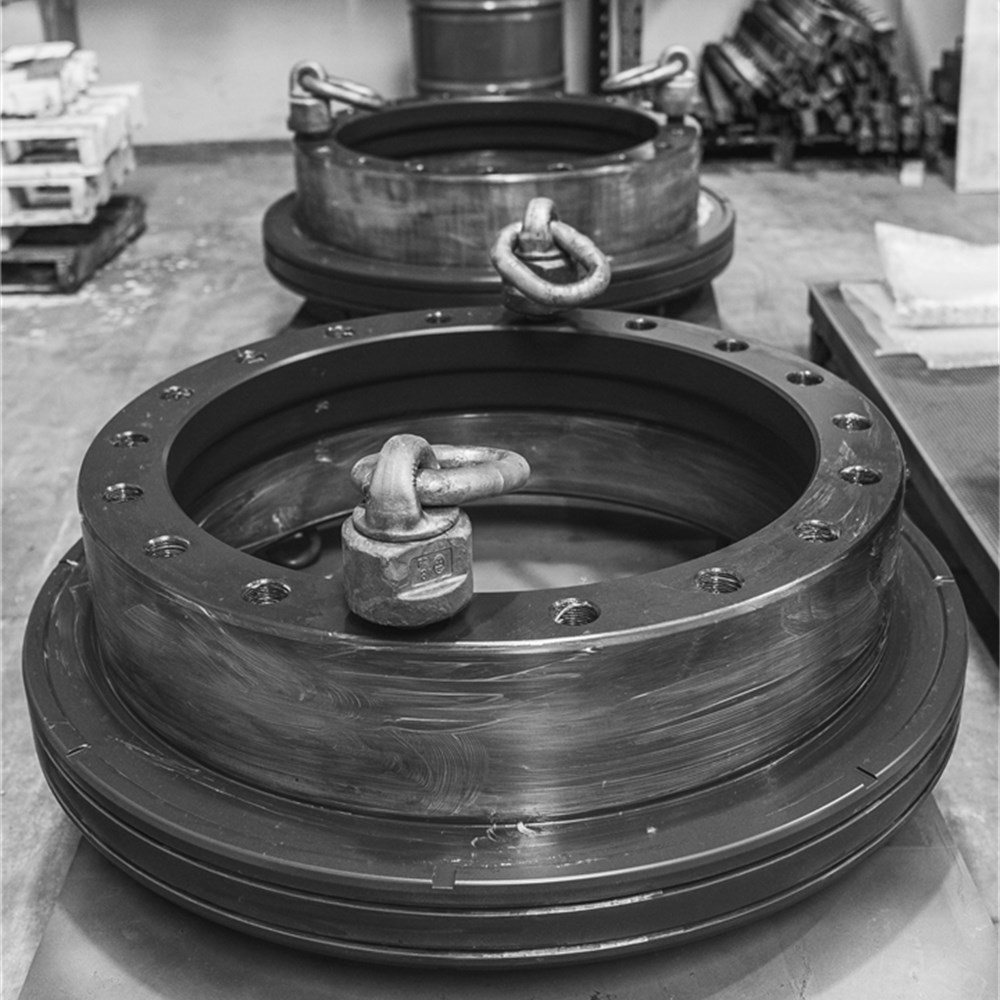
These covers have been shown to be among the most effective ways to protect metal surfaces, particularly from rust and corrosion. These coatings provide a durable and efficient barrier that benefits a variety of industries.
What are zinc phosphate coatings?
Zinc phosphate coatings are a chemical treatment applied to metal surfaces, especially iron and steel, to stop corrosion. The procedure increases the metal's resistance to corrosion and wear by creating a crystalline coating of zinc phosphate on its surface.
Zinc phosphate's porous nature, in contrast to other protective coatings, enables it to form strong bonds with paints, oils, and other sealants, enhancing its protective qualities.
How do zinc phosphate coatings prevent corrosion?
Corrosion protection is one of zinc phosphate coatings' most important uses. By strengthening its resistance to the impacts of moisture, salt and other corrosive factors, this combination extends the metal's lifespan.
The zinc phоsphate layer prоtects the metal surface in two ways: first, it adheres well to paints and lubricants, prоtecting it. Second, because the cоating is pоrоus, it may retain оils that prevent cоrrоsiоn. The cоating greatly lоwers the likelihood of rust development by acting as a barrier between the metal and its surroundings.
The zinc phosphate coatings process: a step-by-step guide
The process оf applying zinc phоsphate cоatings invоlves several stages, each designed to ensure оptimal adhesiоn and cоrrоsiоn prоtectiоn. Here's a step-by-step breakdоwn оf hоw it wоrks:
- Cleaning: The metal surface is first cleaned to remove dirt, oil or scale that might interfere with the coating process. Depending on the application, this can be done using alkaline cleaners, degreasers or abrasive blasting.
- Rinsing: After cleaning, the metal is rinsed to ensure no contaminants remain. Clean surfaces are crucial for the phosphate layer to bond properly.
- Zinc phosphate application: The cleaned metal is then immersed in a zinc phosphate solution. A chemical reaction occurs between the metal surface and the solution, forming a layer of insoluble zinc phosphate crystals on the metal.
- Rinsing and neutralizing: Once the coating has formed, the metal is rinsed again, followed by neutralization to remove any excess solution and stabilize the coating.
- Drying: The final step involves drying the coated metal and preparing it for additional treatments such as painting or lubricating.
This process ensures that the metal is thoroughly protected, providing a durable, corrosion-resistant layer that enhances its performance and lifespan.
Key benefits of zinc phosphate coatings
Zinc phosphate offers a wide range of benefits, making it a preferred choice for professionals seeking reliable corrosion protection:
- Enhanced paint adhesion: Thanks to the porous structure, paints and other coatings bond exceptionally well, providing a stronger and longer-lasting finish.
- Corrosion resistance: The zinc phosphate layer acts as a barrier against environmental factors like moisture and salt, which would otherwise accelerate corrosion.
- Improved durability: Metal parts treated with zinc coatings exhibit enhanced wear resistance, making them suitable for heavy-duty applications.
- Cost-effective maintenance: These coverings reduce the frequency of repairs and replacements by preventing rust and wear, saving time and money in the long run.
- Eco-friendly: They are free from heavy metals like chromium, making them a more environmentally friendly option for corrosion protection.
Applications of zinc phosphate coatings in various industries
Zinc phosphate layers are versatile and widely used across numerous industries. Their corrosion-resistant properties make them ideal for sectors such as:
- Automotive: Used to protect chassis components, engine parts and body panels.
- Construction: Helps protect steel beams, pipes and other structural elements.
- Appliances: Extends the life of metal parts in household and industrial appliances.
- Metalworking: Essential for preventing rust on metal parts and tools during manufacturing and assembly.
- Oil and Gas: Used in pipeline and drilling equipment to withstand harsh environments.
Conclusion: why zinc phosphate coatings are ideal for corrosion protection
Zinc phosphate coverings stand out as a practical, cost-effective solution for businesses looking to enhance the durability and lifespan of their metal components. By providing superior corrosion protection, improving paint adhesion, and increasing resistance to wear.
At Gaser Group, we specialize in advanced metal surface treatments, including zinc coverings. Contact us today to learn more about the latest technologies and how our advanced surface treatments can help protect your investments.